Dermatologist-approved products for preventing and reversing sun damage
There are pros and cons when it comes to sunlight. Sun exposure is essential to help maintain optimal levels of vitamin D and has been associated with stronger bones, improved mood, and a better immune system. However, too much sun exposure may not only lead to visible aging (fine lines and age spots)—most likely a sign of sun damage—but also increase your risk of skin cancer.
Practicing sun safety habits, such as wearing sunscreen and protective clothing, is the best solution to prevent skin aging and reduce your likelihood of skin cancer. But, if you’ve started to see the effects of sun damage, there’s no need to panic. There are many products that may help to repair and even reverse sun-damaged skin.
But with so many skin care products available, some with false claims, how do you pick the best one?
We spoke to dermatologists about the products they recommend to repair and reverse sun damage for healthier skin.
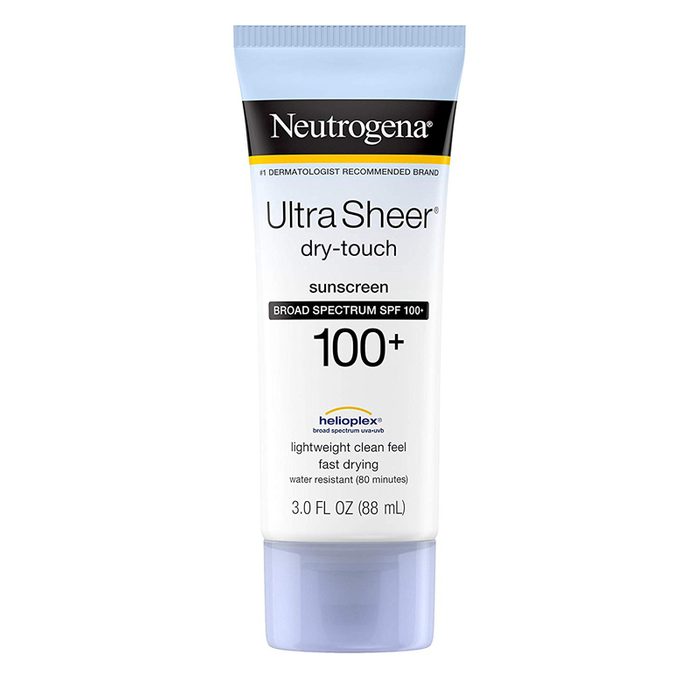
Neutrogena Ultra Sheer Dry Touch SPF 100 Sunscreen
$8.97
There are many products you can use to try and minimize sun damage, but we’d be remiss not to start with the most powerful first line of defense: sunscreen. “I recommend my patients wear Neutrogena Ultra Sheer Dry Touch SPF 100 sunscreen,” says dermatologist Lynn McKinley-Grant, MD, president of the Skin of Color Society and associate professor and director of innovation and development at Howard University College of Medicine, department of dermatology, in Washington, D.C. “It has no fragrance, moisturizes the skin, and blends really well into the skin for those with darker skin types.”
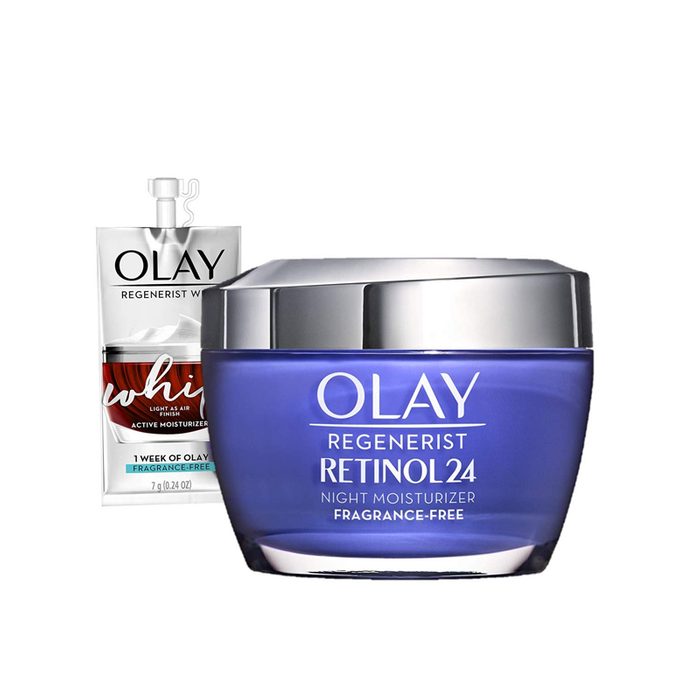
Olay Regenerist Retinol Moisturizer
$46.99
When you want something more than sunscreen to help minimize sun spots, you’ve got options: “The most trusted over-the-counter ingredient for reversing the effects of sun damage is retinol,” says Jason Miller, MD, a dermatologist at the Schweiger Dermatology Group in Freehold, New Jersey. “Retinol is a topical vitamin A derivative and a milder version of prescription retinoids such as Retin-A. Retinol can be found in numerous cost-effective product brands, like Olay Regenerist, or cosmeceutical grade products available from your dermatologist. In addition to retinol, vitamin C-containing products can help fade sun spots that develop over time.”
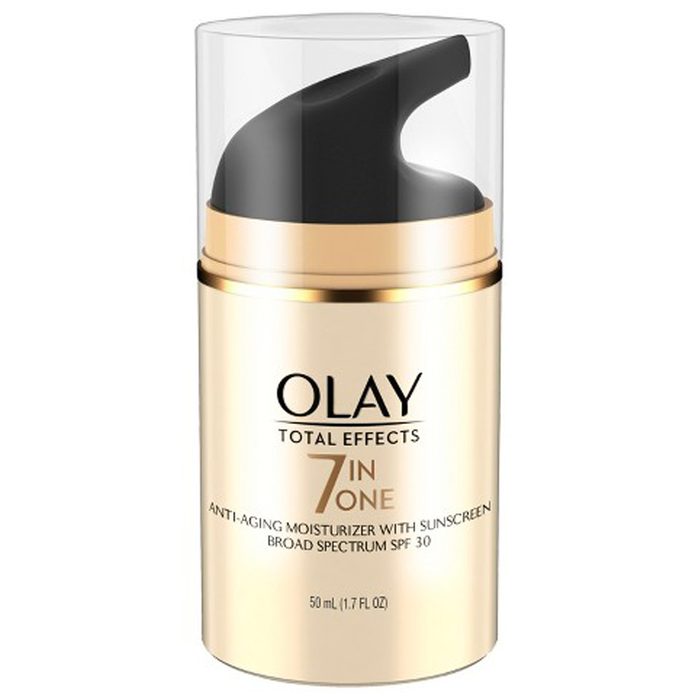
Olay Total Effects Anti-Aging Moisturizer with SPF 30
$22.12
“This is my favorite product to recommend—it’s affordable and effective,” says Erum Ilyas, MD, and founder of Montgomery Dermatology in King of Prussia, Pennsylvania. “It contains niacinamide, which has been shown to reduce the damaging effects of UV on the skin as well as enhancing DNA repair. I also prefer products that include a sunblock, because they minimize the chances of forgetting to use it.”
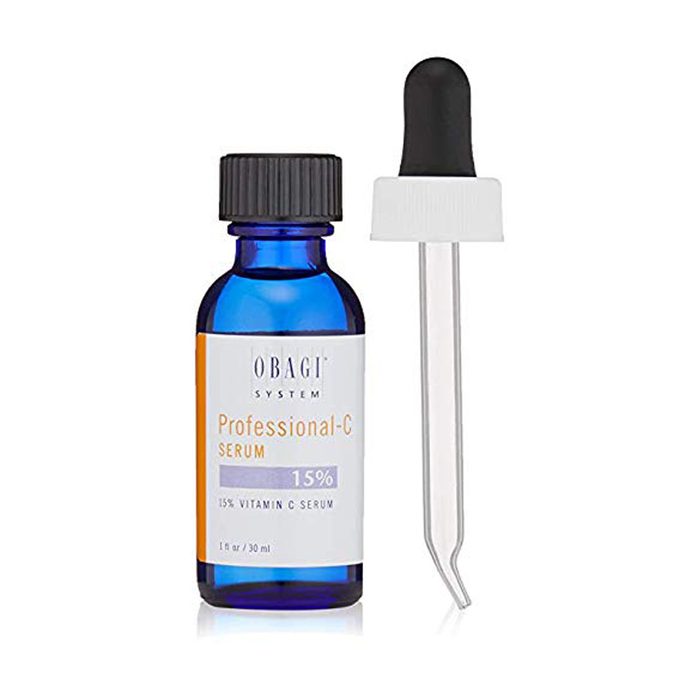
Obagi Medical Professional-C Serum
$86.00
“I recommend a vitamin C serum because it helps to fight free-radical damage from ultraviolet light,” says Mona Gohara, MD, a dermatologist at the Dermatology Physicians of Connecticut in Hamden. “Serums are light, cosmetically elegant, and easy to layer, providing perfect protection in the morning. I also recommend Heliocare—it’s a fern extract pill that helps with those pesky free radicals, too. But remember: Pills do not take the place of sunscreen but they certainly help to bolster protection.” To create your own morning skincare routine, follow these habits of people with great skin.
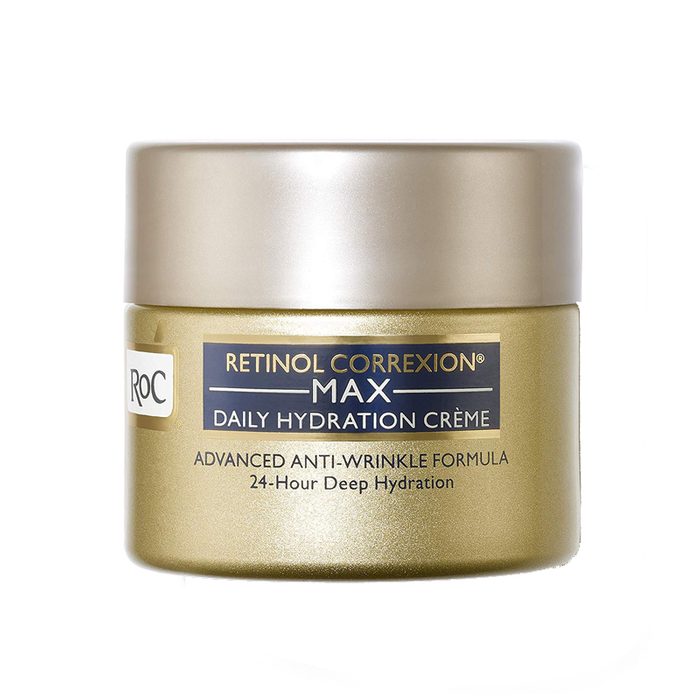
RoC Retinol Correxion Max Daily Hydration Crème
$20.49
“After sunscreen, my second recommendation is a retinoid,” says dermatologist Jennifer Krejci-Manwaring, MD, assistant professor in the division of dermatology at UT Health San Antonio. “Topical retinoids help build collagen and increase cell turnover, which improves the texture and pigmentation of your skin. Over-the-counter versions are available that are milder and contain the ingredients retinol or retinyl, which are converted to the active form when they are absorbed into the skin. There are lower-cost versions available at your local drugstore or higher-priced brands found at department stores, but they essentially do the same thing. Sometimes, the main difference in price is the feel of the product or the fragrance.”
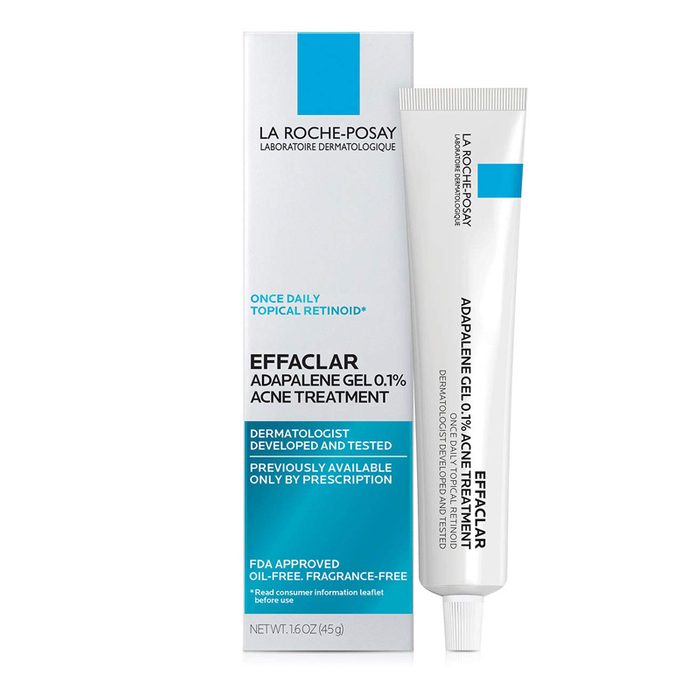
La Roche-Posay Effaclar Adapalene Gel 0.1% Acne Treatment
$29.99
“The best skin care routine to offset the damage inflicted by the sun includes using vitamin A derivatives,” says Florida-based dermatologist Alexis Stephens, DO, FAAD, FAOCD, fellow of the American Academy of Dermatology. “These holy grails of skin care fight photodamage, hyperpigmentation, fine lines, wrinkles, acne, and much more. But they can be tricky, expensive, and irritating. All vitamin A derivatives are not created equal. I like La Roche Posay Effaclar Adapalene 0.1 % gel—it’s prescription strength without the need for a prescription. And it’s formulated to be gentle yet effective, plus the gel formula allows for easy application and increased patient compliance.”
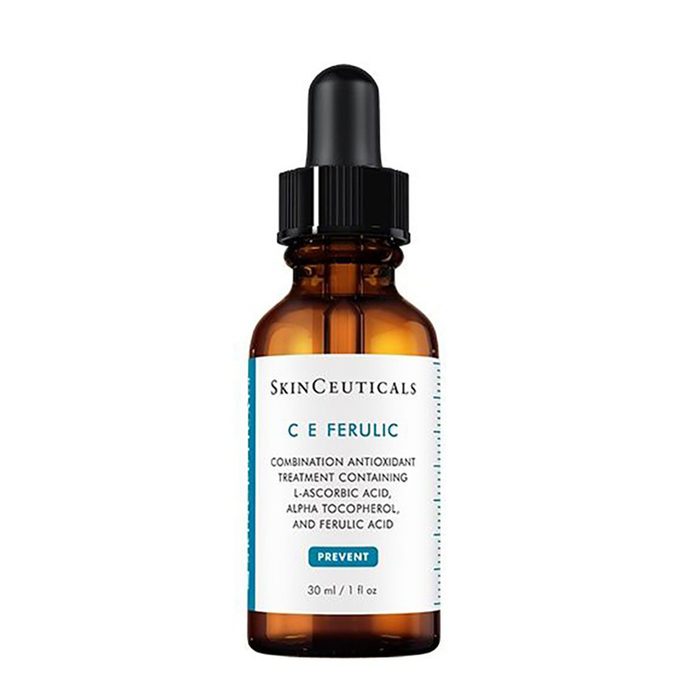
Skinceuticals CE Ferulic
$159.99
“I recommend antioxidants as they work to reduce free radicals—the markers of damage inside the cell—and repair damage in the cell,” says Morgan Rabach, MD, dermatologist and co-founder of LM Medical NYC. “Products with Vitamin C and Coenzyme Q topicals are great antioxidants. A product I like to recommend is Skinceuticals CE Ferulic—it’s paraben free, helps to neutralize free radicals, and improves texture and clarity of skin.” Don’t miss the ways dermatologists change up their skin care routine for spring.
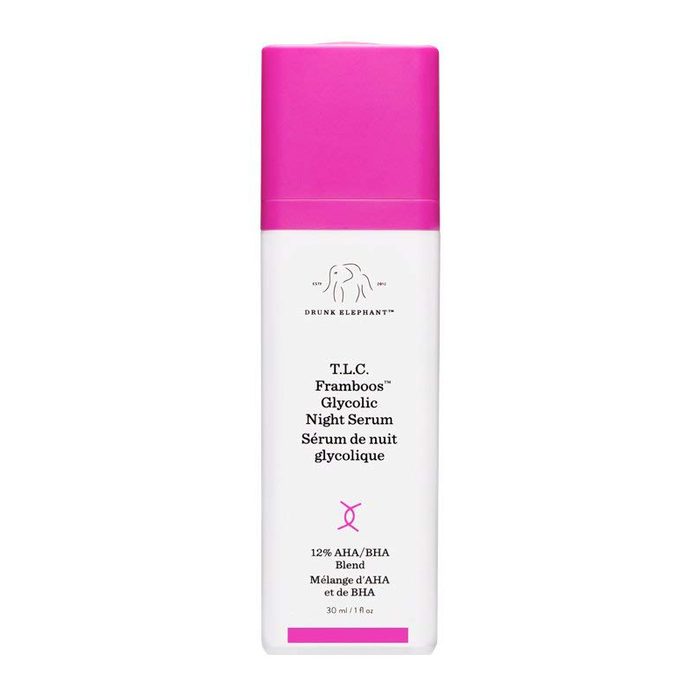
Drunk Elephant T.L.C. Framboos Glycolic Night Serum
$90.00
“Glycolic acids are AHAs—alpha hydroxy acids—that help to exfoliate dead skin and give that healthy ‘glow,'” says Jenny Liu, MD, assistant professor in the department of dermatology at the University of Minnesota in Minneapolis. “These are common ingredients found in chemical peels. With use over time, it helps to remove dyspigmentation, improve texture and tone. AHAs have also shown to stimulate collagen production. They come in many different formulations (washes, serums, peels), but one of my favorite ways to use them is to apply an overnight treatment like Drunk Elephant a few times a week. I recommend not using retinoids on these nights to avoid skin irritation.”
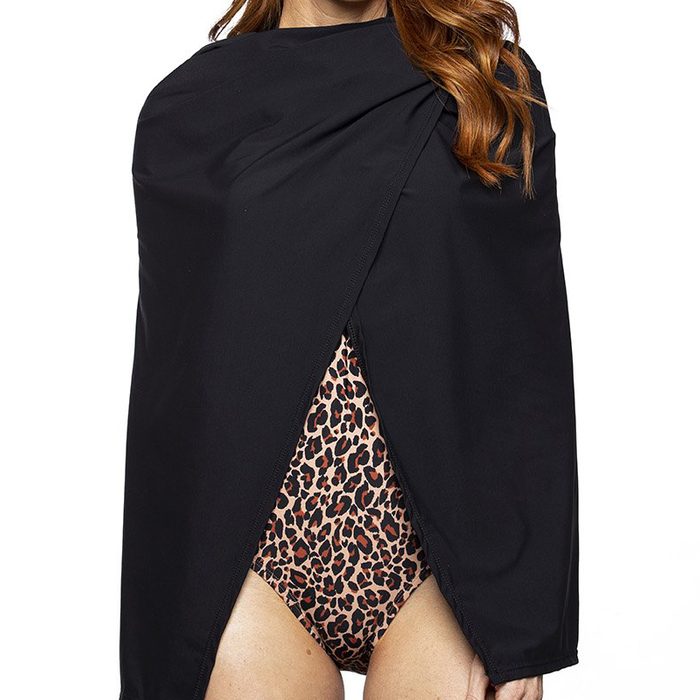
SolwearMD Black Wrap
$98
Want something that isn’t topical cream or gel? Consider a smart cover-up. “The solwearMD wrap is the first dermatologist created patent pending sun protective clothing accessory for women,” says creator and dermatologist Lisa Pruett, MD, in Carrollton, Texas. “It was developed as an alternative to wearing sunscreen to protect areas like the chest, back, neck, and arms. These are areas of the skin that are commonly neglected, so we wanted to give people an alternative that was safe and easy to use. It’s a cover-up that is made with UPF50+ rated fabric.”
